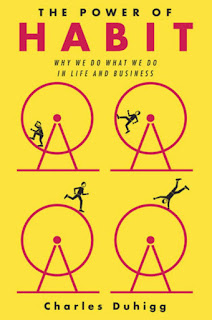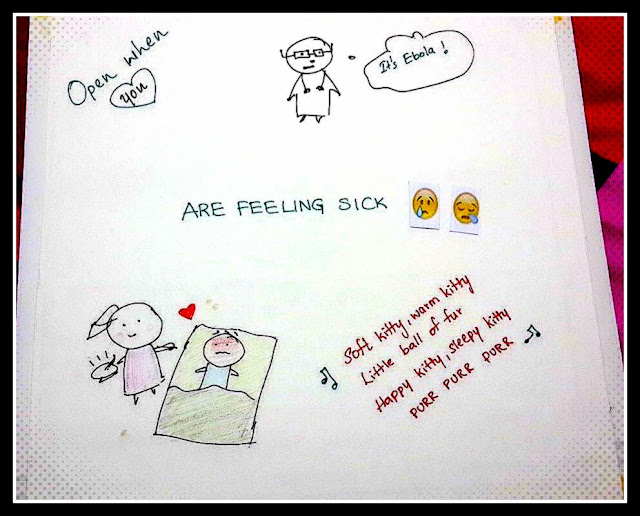The Power of Habit by Charles Duhigg - Summary and Review
“All our life, so far as it has definite form, is but a mass of habits”
"The Power of Habit" talks about how a decision becomes an automatic behavior, how habits emerge within individual lives, habits of successful companies and organizations, habits of societies along with ethical questions and the important part - how habits can be changed.
I was skeptical about this book initially thinking that it might be some cheesy self help book, but it did have some great points. I felt that the key points are only few and the book majorly has several anecdotes to drive the same key points many times. Nevertheless, a good read to understand habits - especially at the beginning of this year to get those new year resolutions rolling ;)
Rating : 3.5/5
"The Power of Habit" talks about how a decision becomes an automatic behavior, how habits emerge within individual lives, habits of successful companies and organizations, habits of societies along with ethical questions and the important part - how habits can be changed.
 |
| The Power of Habit by Charles Duhigg |
Summary:
- All habits were once a conscious decision/choice. Our brain "chunks" : converts a sequence of actions into an automatic routine and forms new habits.
- Habit loop : cue, routine and reward.
- Cue - a trigger that tells your brain to go into automatic mode and which habit to use.
- Routine - which can be physical or mental or emotional.
- Reward - which helps your brain figure out if this particular loop is worth remembering for the future.
- Craving - neurological pattern associated with desire and frustration.
- Habits are surprisingly delicate. Habits can be changed, if we understand how they work.
- New habit = putting together a cue, a routine, and a reward, and then cultivating a craving that drives the loop.
- Find a simple and obvious cue. Clearly define the rewards.
- The cue, in addition to triggering a routine, must also trigger a craving for the reward to come.
- The Golden Rule of Habit Change: You can’t extinguish a Bad Habit, You can only change it. How it works: use the same cue. provide the same reward. change the routine.
- AA’s(Alcohol Anonymous) famous twelve steps are a method for attacking the habits that surround alcohol use.
- Changing habit loops: to change an old habit, you must address an old craving.
- Create a list of all the triggers- self-inventory.
- Relapse into an old habit - usually happens after a stressful event to automatically deal with anxiety.
- For some habits, another ingredient is necessary: belief.
- When people join groups where change seems possible, the potential for that change to occur becomes more real.
- Belief is easier when it occurs within a community.
- Keystone Habits - Habits that matter most and have the power to start a chain reaction.
- Keystone habits say that success doesn’t depend on getting every single thing right, but instead relies on identifying a few key priorities and fashioning them into powerful levers. Piling on so much change at once made it impossible for any of it to stick.
- The habits that matter most are the ones that, when they start to shift, dislodge and remake other patterns.
- Routines are the organizational analogue of habits.
- Small wins fuel transformative changes by leveraging tiny advantages into patterns that convince people that bigger achievements are within reach.
- Understand the problem’s root causes.
- Starbucks drill downs the training to employees to handle exceptional conditions and to drive the habit of serving with a smile at the end of a tiring day.
- LATTE : Listen to the customer, Acknowledge their complaint, Take action by solving the problem, Thank them, and then Explain why the problem occurred.
- Deloitte's “Moments That Matter,” focuses on dealing with inflection points such as when a client complains about fees, when a colleague is fired, or when a Deloitte consultant has made a mistake.
- Willpower is a learnable skill. Many companies use pre-programmed routines to deal with inflection points.
- Specific, detailed plans about the most mundane aspects of the new routine and detailing every obstacle one might confront, and coming up with a solution ahead of time for each obstacle are the key. Design willpower habits to help overcome painful inflection points.
- Leaders create Habits through Accident and Design : crises are such valuable opportunities that a wise leader often prolongs a sense of emergency on purpose.
- Routines create truces that allow work to get done. If a truce is unbalanced—if the peace isn’t real—then the routines often fail when they are needed most.
- Companies predict and manipulate habits (shopping patterns).
- Sticky songs are what you expect to hear on the radio. Your brain secretly wants that song, because it’s so familiar to everything else you’ve already heard and liked.
- DJs, radios, music channels play a new song between two consensus popular hits to get the new song familiar.
- Seek out patterns and look for familiarity. Make the new thing comfortable by camouflaging in what is already familiar.
- Whether selling a new song, a new food, or a new crib, the lesson is the same: If you dress a new something in old habits, it’s easier for the public to accept it.
- Same insights can be used to change how we live.
- Mass movements :
- Our deepest relationships tend to be with people who look like us, earn about the same amount of money, and come from similar backgrounds. Mass movements are driven by an influence of - “the power of weak ties” or peer pressure.
- For an idea to grow beyond a community, it must become self-propelling.
- Are we responsible for our Habits? - Making the right choice in the beginning when the habits haven't kicked in and aren't driving us, is easier.
- The Framework summary:
• Identify the routine
• Experiment with rewards
• Isolate the cue : Location, Time, Emotional state, Other people - immediately preceding action.
• Have a plan
Review:
The book provides many insights to understand habits and to transform them. Though the cue, routine, reward is a highly popularized concept, this book provides many examples and a step by step process to get to the bottom of habit formation. I especially loved the "keystone habit" concept - to start with something tiny and get the ball rolling.I was skeptical about this book initially thinking that it might be some cheesy self help book, but it did have some great points. I felt that the key points are only few and the book majorly has several anecdotes to drive the same key points many times. Nevertheless, a good read to understand habits - especially at the beginning of this year to get those new year resolutions rolling ;)
Rating : 3.5/5



Comments
Post a Comment